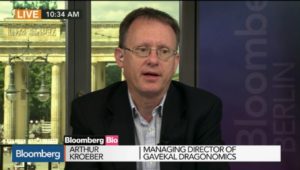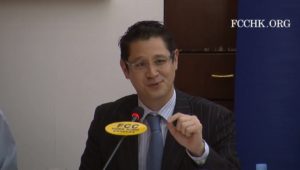 |
| Harry Broadman |
Making sense out of US president Donald Trump's economic policies has become impossible, even for the most seasoned observers, like
Harry Broadman. For Forbes he tries to make sense out of the damage Trump has caused up to now, and the decades it will cost to repair that damage.
Harry Broadman:
With every passing day it’s getting increasingly difficult to not overstate the potentially profound corrosive effects on the opportunities and risks for continued growth in the U.S. and across the globe of the Trump Administration’s handling of international economic policy. As in his campaign, the President has been successfully—at least to date—pursuing a divide and conquer strategy domestically and internationally to try to achieve his goals. The result is an absence of a robust set of checks and balances to ensure that the best economic interests of the U.S. and the world will be served.
The state of affairs is a triple whammy of divisiveness at home and abroad: the overarching direction and content of many of Trump’s policies is pitting firms in one sector against those in another, and business interests against consumers and workers--a strategy that will serve to distort and shrink the size of the economic pie, not one towards enhancing overall prosperity; the White House’s policy-making process of "America-go-it alone" on a bilateral basis is out of whack with both the actual multinational production structure of world markets and the companion long-standing multilateral protocol of teaming up with friendly countries through existing international alliances (for which the U.S. was the chief architect) to smooth out bad conduct by national actors who don’t play by global rules; and the seemingly moment-by-moment upheavals, in-fighting and reversals of the Administration’s stance on the economy is generating unprecedented policy uncertainty, which is only serving to destabilize long-term investment incentives (running counter to the objectives of the White House's earlier push for cutting corporate tax rates).
The unmistakable substance of the Administration’s economic policy—echoing of course, Trump’s slogan of "making America great again"—is one of both significant protectionism and castigating those outside of the United States as the primary source of any woes evident in the domestic economy.
It’s fundamentally counterproductive for Trump to ignore that there is in fact plenty of blame to be had at home if he truly wants to achieve his stated objectives. And, finger-pointing at foreigners, no matter how well it might sell at rallies or on television, distracts attention from where it needs to be focused.
More at Harry Broadman's column
here republished with the kind permission of the author.
Harry Broadman is a speaker at the China Speakers Bureau. Do you need him at your meeting or conference? Do get in touch or fill in our speakers' request form.
Are you looking for more experts trying to make sense out of the US-China trade war at the China Speakers Bureau? Do check out this list.















